#navalny (2022)
Text
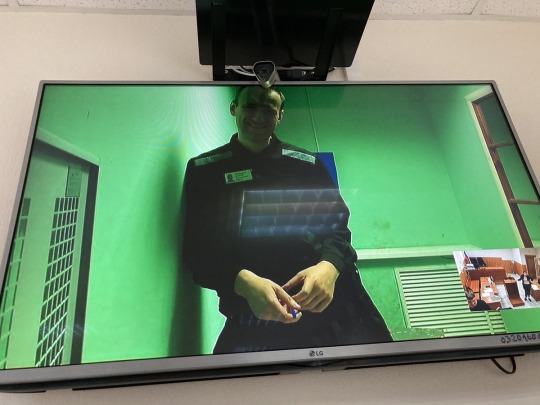
Aleksei Navalny ❤️
10 November 2022
0 notes
Photo

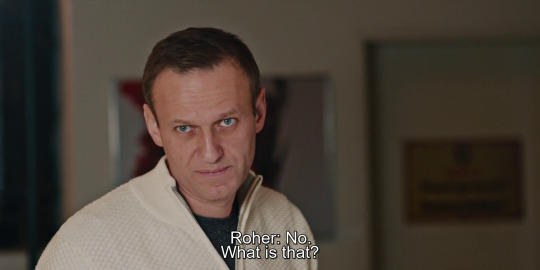



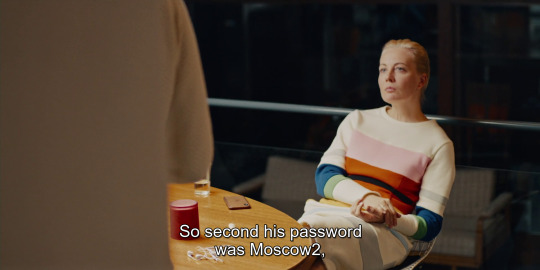
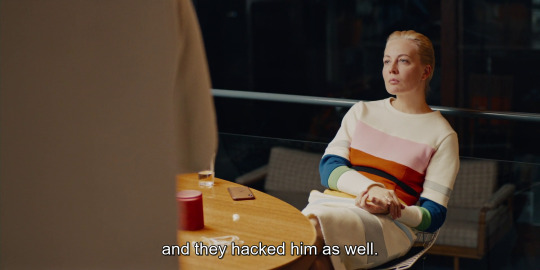


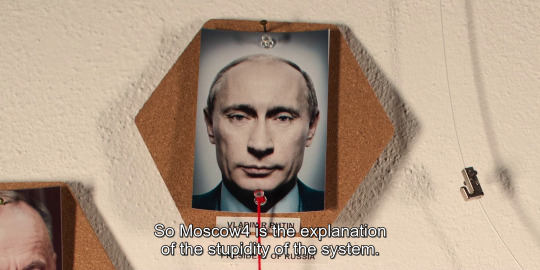
Navalny (Daniel Roher, 2022).
#navalny#daniel roher#putin#alexei navalny#niki waltl#maya hawke#langdon page#navalny (2022)#vladimir putin
29 notes
·
View notes
Photo
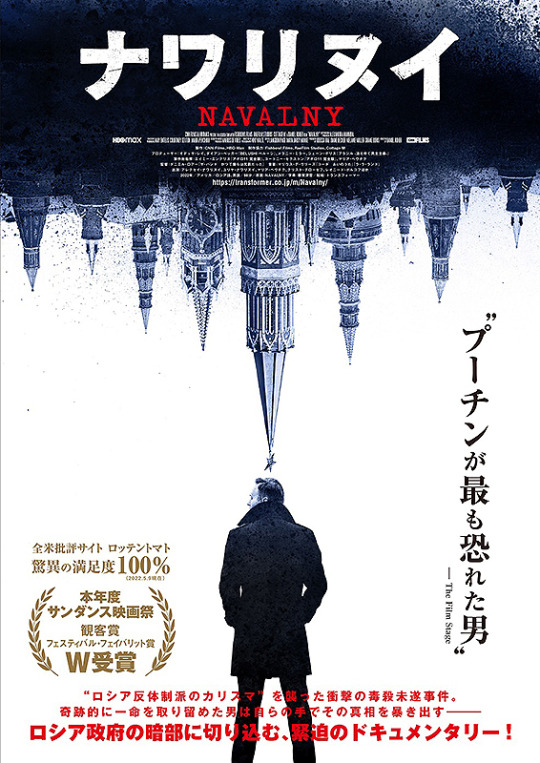
"Navalny" (idem) - hbo max.
Documentário que concorre ao Oscar sobre Alexei Navalny, político russo que desafiou Putin e acabou envenenado. O caso internacional ficou bastante conhecido e fiquei interessado em saber mais detalhes da história toda. A Rússia partiu pra guerra contra a Ucrânia e o mundo está assustado. Jogar uma luz nesse país sombrio é importante.
depois de ver: parece um filme de espionagem, mas é real. a parte final é surpreendente, quando descobrimos a maneira que usaram pra envenenar. vale ver.
#Alexei Navalny#Navalny#hbo max#Daniel Roher#Yulia Navalnaya#Dasha Navalnaya#Vladimir Putin#Angela Merkel#2022
8 notes
·
View notes
Text
Most of the time, when heads of state talk about nuclear war, they speak in careful, measured tones, acknowledging the gravity of the nuclear taboo and the consequences of breaking it. The Russian president takes a different approach. Speaking at his annual foreign-policy conference a few years ago, Vladimir Putin reflected, without smiling, on the consequences of a nuclear war. “We will go to heaven as martyrs,” he said, “and they will just drop dead.”
At the same conference last month, a regime insider, Fyodor Lukyanov, asked him about this remark: “You said that we would all go to heaven, but we’re in no hurry to get there, right?” Putin did not answer. The seconds ticked by. Lukyanov said, “You’ve stopped to think. That’s disconcerting.” Putin responded, “I did it on purpose to make you worry a little.”
I did it on purpose to make you worry a little? Why does he want anyone to worry? Because fear is not just a feeling or an ephemeral emotion; it is a physical sensation. It can grip your stomach, freeze your limbs, make your heart beat faster. Fear can distort the way you think and act. Because it can be so paralyzing, human beings have always tried to make other human beings feel fear. If you can make your enemies afraid, they will not oppose you, because they cannot oppose you. You can then win the argument, the battle, or the war without ever having to fight.
Putin is a KGB officer who knows about the manipulation of emotions, fear most of all. For two decades, he has sought to evoke fear inside Russia. Unlike his Soviet predecessors, he doesn’t shoot or arrest millions of people. Instead, he uses targeted violence, specially designed to create fear. When the investigative reporter Anna Politkovskaya was gunned down in her Moscow stairwell, and when the businessman Mikhail Khodorkovsky was sent to prison for a decade, other journalists and other businessmen got the message. When the opposition politicians Boris Nemtsov and Alexei Navalny were murdered and poisoned, respectively, those incidents sent a message too. This isn’t mass terror, but it is just as effective. Fear keeps Putin in power by rendering people too frightened to report news, protest government actions, or conduct independent business or even independent activity of any kind.
Putin also seeks to create fear in the outside world, especially the democratic world. He does this, above all, by bantering about nuclear weapons, at conferences and everywhere else. Indeed, this has been a central subject of his public commentary, and of Russian propaganda more broadly, for many years. Pictures of mushroom clouds appear regularly on the evening news. Threats of nuclear strikes against Ukraine have been made repeatedly, as far back as 2014. Russia’s armed forces practice nuclear strikes as a routine part of military exercises. Back in 2009, they played out a war game that included dropping a nuclear bomb on Poland. This constant, repetitive nuclear signaling, which long predates the current war, has a purpose: to make NATO countries afraid to defend Poland, afraid to defend Ukraine, and afraid to provoke or anger Russia in any way at all.
— Fear of Nuclear War Has Warped the West’s Ukraine Strategy
#anne applebaum#fear of nuclear war has warped the west’s ukraine strategy#current events#warfare#nuclear warfare#politics#russian politics#psychological warfare#psychology#totalitarianism#russo-ukrainian war#2022 russian invasion of ukraine#russia#ukraine#poland#vladimir putin#fyodor lukyanov#anna politkovskaya#mikhail khodorkovsky#alexei navalny#boris nemtsov#kgb#nato
10 notes
·
View notes
Photo
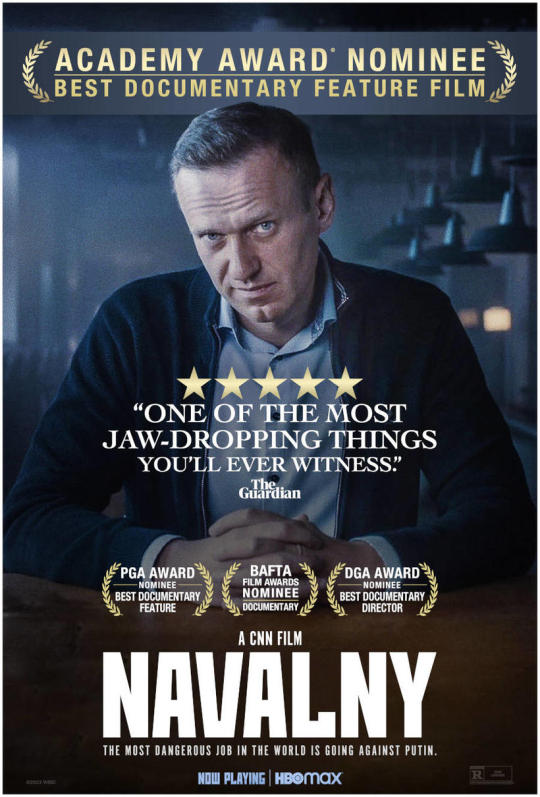
Movie #33 of 2023: Navalny
The prank call scene is legendary.
#navalny#documentary#biography#daniel roher#marius de vries#anna drubich#matt robertson#niki waltl#maha hawke#langdon page#english#russian#german#red epic#music film club#2022#33
3 notes
·
View notes
Text
Rookie-Critic's Top 25 Films of 2022:
#22: Navalny (dir. Daniel Roher)

The sole documentary on this year's list, even when accounting for the Honorable Mentions, Navalny really punches you off your feet. Arresting you in a story that, if you didn't care about it before, you will once you get about 30 minutes into the film. Alexei Navalny is the Russian opposition leader, and the man who has the best chance of beating Vladimir Putin. He has such a good chance, in fact, that Putin saw fit to have someone poison him. The film follows Navalny and his team as they try to uncover the truth behind his assassination attempt, and one sequence involving a phone call that had me in complete disbelief. This is a dive down into the depths of what men in power will do when their power is threatened, and it is as fascinating as it is horrifying.
Currently streaming on HBO Max.
Read my wrap-up review of Navalny here.
3 notes
·
View notes
Text
On the subject of year-end lists, such as this one, we seem to have gone into a vortex of responses to responses, an ungainly ouroboros of online discussion (my goodness could Twitter, the very definition of tempest-in-a-teacup, somehow be involved?) and argument/counter argument endgames.
On the one hand, we have the beleaguered critics imposed by their publications to produce such compendiums (though, to be clear, not in my case as the stately Philip Martin allows his writers a great deal of artistic clearance), on the other, the wags and wages of the online space (as well as some of the creative artists behind the films themselves) who question the efficacy of such lists, and the necessity of breaking everything down by such quantitative analytics. It's art, after all, and therefore utterly subjective. What's the point of anything, for the love of God?
It's a viable position, but I think a lot of it comes down to the point of the proclamation. Is the list in question stating, unequivocally, the best films of the year? If so, the arguments can rain down like hailstones upon the head of the writer. If, however, the list is a compendium of the best films that particular critic saw in the year of our lord, 2022, that can't really be fought against (it could be ignored, of course, but that's a different problem). Hence, please note the title of this particular compilation.
#sweet smell of success#ssos#piers marchant#films#movies#best films of 2022#best films I saw in 2022#aftersun#charlotte wells#sanctuary#navalny#the menu#cow#watcher#klondike#the banshees of inisherin#RRR#everything everywhere all at once#arkansas democrat gazette
2 notes
·
View notes
Photo





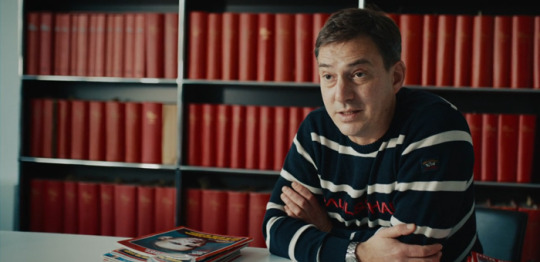
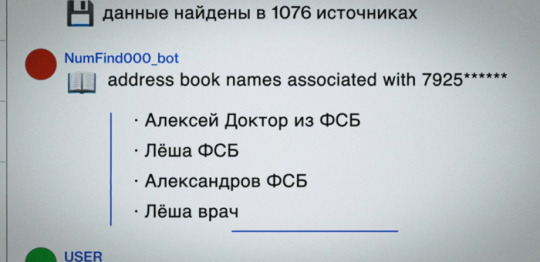



Navalny
Daniel Roher
USA, 2022
★★★
Next time, try "password123"
2 notes
·
View notes
Text
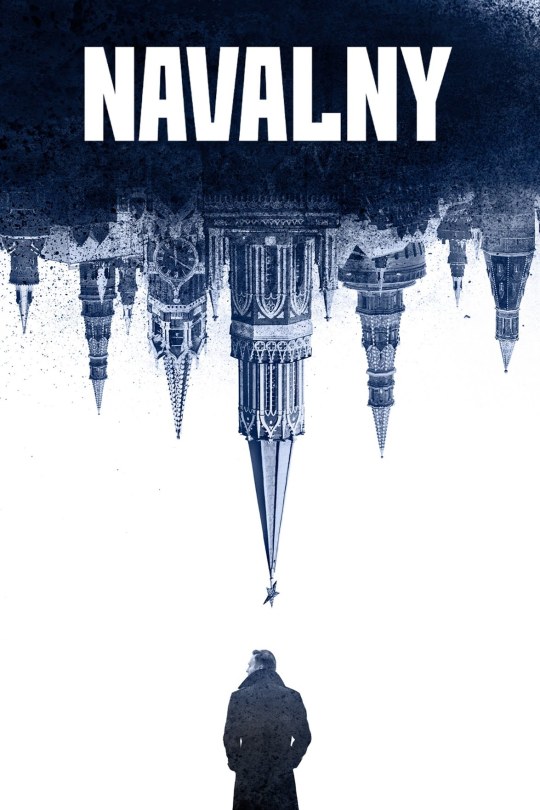
1 note
·
View note
Text
Things Biden and the Democrats did, this week. #6
Feb 16-23 2024
The EPA announced 5.8 billion dollars in funding upgrade America's water systems. 2.6 billion will go to wastewater and stormwater infrastructure, while the remaining $3.2 billion will go to drinking water infrastructure. $1 billion will go toward the first major effort to remove PFASs, forever chemicals, from American drinking water. The Administration all reiterated its plans to remove all lead pipes from America's drinking water systems, its spent 6 billion on lead pipe replacement so far.
The Department of Education announced the cancellation of $1.2 billion in student loan debt reliving 153,000 borrowers. This is the first debt cancellation through the Saving on a Valuable Education (SAVE) Plan, which erases federal student loan balances for those who originally borrowed $12,000 or less and have been making payments for at least 10 years. Since the Biden Administration's more wide ranging student loan cancellation plan was struck down by the Supreme Court in 2023 the Administration has used a patchwork of different plans and authorities to cancel $138 billion in student debt and relieve nearly 4 million borrowers, so far.
First Lady Jill Biden announced $100 million in federal funding for women’s health research. This is part of the White House Initiative on Women’s Health Research the First Lady launched last year. The First Lady outlined ways women get worse treatment outcomes because common health problems like heart attacks and cancer are often less understood in female patients.
The Biden Administration announced 500 new sanctions against Russian targets in response to the murder of Russian dissident Alexei Navalny. The sanctions will target people involved in Navalny's imprisonment as well as sanctions evaders. President Biden met with Navalny's widow Yulia and their daughter Dasha in San Francisco
The White House and Department of Agriculture announced $700 Million in new investments to benefit people in rural America. The projects will help up to a million people living in 45 states, Puerto Rico, and the Northern Mariana Islands. It includes $51.7 million to expand access to high-speed internet, and $644.2 million to help 158 rural cooperatives and utilities provide clean drinking water and sanitary wastewater systems for 578,000 people in rural areas.
The Department of Commerce signed a deal to provide $1.5 billion in upgrades and expand chip factories in New York and Vermont to boost American semiconductor manufacturing. This is the biggest investment so far under the 2022 CHIPS and Science Act
the Department of Transportation announced $1.25 billion in funding for local projects that improve roadway safety. This is part of the administration's Safe Streets and Roads for All (SS4A) program launched in 2022. So far SS4A has spent 1.7 billion dollars in 1,000 communities impacting 70% of America's population.
The EPA announced $19 million to help New Jersey buy electric school buses. Together with New Jersey's own $45 million dollar investment the state hopes to replace all its diesel buses over the next three years. The Biden Administration's investment will help electrify 5 school districts in the state. This is part of the The Clean School Bus Program which so far has replaced 2,366 buses at 372 school districts since it was enacted in 2022.
Bonus: NASA in partnership with Intuitive Machines landed a space craft, named Odysseus, on the moon, representing the first time in 50 years America has gone to the moon. NASA is preparing for astronauts to return to the moon by the end of the decade as part of the Artemis program. All under the leadership of NASA Administrator, former Democratic Senator and astronaut Bill Nelson.
#Thank Biden#Joe Biden#student loans#student loan forgiveness#climate change#climate crisis#Russia#Alexei Navalny#women's health#NASA#odysseus#moon landing#good news#Democrats#Politics#us politics
707 notes
·
View notes
Text
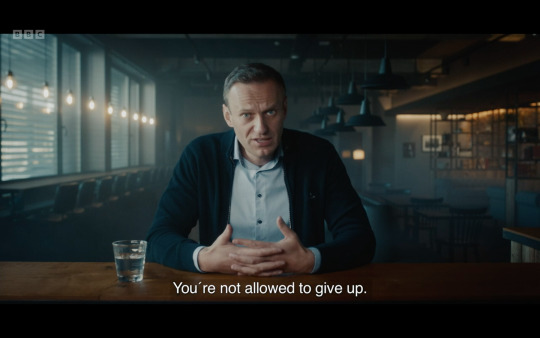
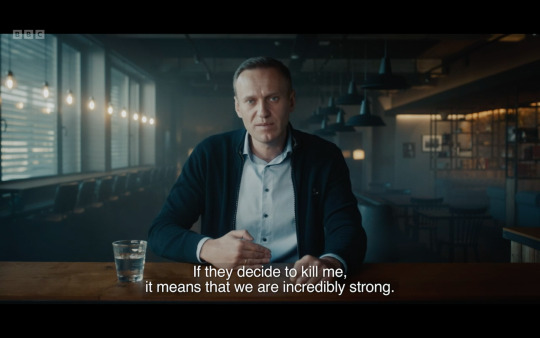



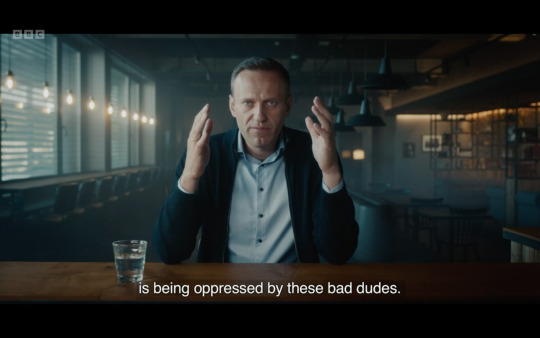





Navalny (Daniel Roher, 2022)
544 notes
·
View notes
Text
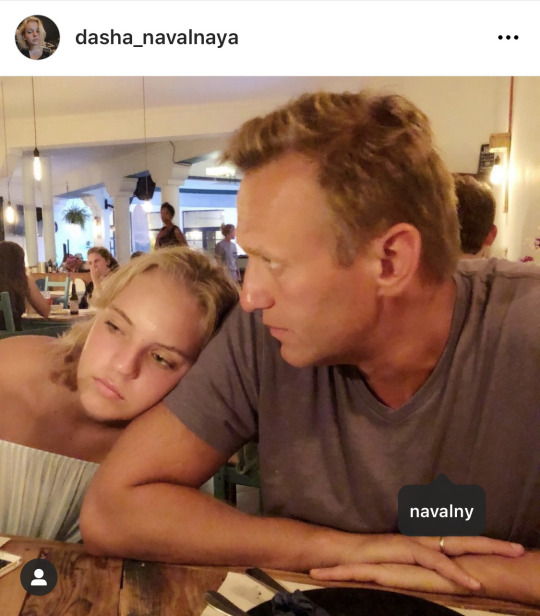
Father and daughter
#FreeNavalny
1 note
·
View note
Text
Only these kind of people from Russia can be called "good Russians" without sarcasm.
Listen to what he says.
Most Russians, even liberal ones, even those you see rallying for Navalny, would skin this guy for the things he says - like not agreeing with the occupation of Crimea in 2014, or Russia choosing the fascist road, or that both nations - Ukraine and Russia - will win in this ONLY if the war ends on Ukraine's terms.
PS: a surgeon from Moscow disagreed with Russian occupation of parts of Ukraine in 2014, and in 2022, when Russia started a full scale war, he left to live in Estonia and now comes to Kyiv frequently to do surgeries for Ukrainian soldiers wounded in battles.
#ukraine#russia#actual good russian#russian culture#russian invasion#russia is a fascistic state#russia is a terrorist state
237 notes
·
View notes
Text
Natalia Arno was fully inside the hotel room before she noticed the smell. It was sickly sweet, like a cheap perfume at the drug store, only more nauseating. [...] The Russian activist and non-profit director had been on the road, meeting with donors and organisers looking for ways to bolster democracy back in Russia.
[...] Three hours later, Arno woke up with an excruciating pain inside her mouth — a burning sensation so unbearable she could barely open it. [...] By the time she had checked in at the airport, she could no longer stand straight. Her vision was blurred; she wobbled. In her mouth, she tasted stone. On the plane, Arno began hallucinating.
Ever since Vladimir Lenin set up his poison factory, known as the “Special Room”, over a century ago, poisonings have become one of the Kremlin’s preferred ways to eliminate, cripple or terrorise enemies and critics. Over the decades, it has built up unrivalled expertise in the field. [...] Most targeted poisonings are, by design, hard to detect.
[...] The horrific details of Russian poisoning attacks have accumulated over decades: the hiding of a ricin pellet inside the tip of an umbrella said to have been used in 1978 to stab the Bulgarian dissident writer Georgi Markov in the leg, killing him in less than a week. The placing of a radioactive isotope, Polonium-210, in the green tea drunk by the former Russian security services agent and Putin critic Alexander Litvinenko in 2006. The smearing of one novichok variant, a deadly nerve agent, on the British double agent Sergei Skripal’s door in 2018 and another on Russian opposition leader Alexei Navalny’s underpants in a Siberian hotel room in 2020.
[...] In October 2022, Elena Kostyuchenko, a Russian journalist working for the independent news outlet Meduza, became violently ill on her way back to Berlin from Munich. The same month, Irina Babloyan, a radio journalist with an independent station, got sick on the day she was meant to travel back from Tbilisi to Berlin via Armenia. Kostyuchenko and Babloyan experienced similar symptoms: sharp pain in the upper abdomen, palms that burnt or swelled, severe vertigo and fatigue.
[...] Western governments may struggle to keep up with the security threat. The universe of potential toxic chemicals is limitless — and the advance of technology has multiplied the ways in which an enemy might use them. “There are agents we don’t even know exist that are out there [being used] right now . . . That makes it really hard to do analytics,” Holstege said.
Most toxicology labs do not have experience in examining state-sponsored poisonings using unusual toxic agents.
[...] When we spoke over the phone, Grozev was unfazed by the argument that the victims weren’t high-profile-enough targets. “Talking to insiders in the security services, there’s a clear understanding that the concept of a ‘traitor’ is much more easily assigned these days than before,” he said. “Any Russian who opposes the war or criticises Putin now is a potential victim.”
Russia’s terrifyingly effective poisoning operation
168 notes
·
View notes
Text
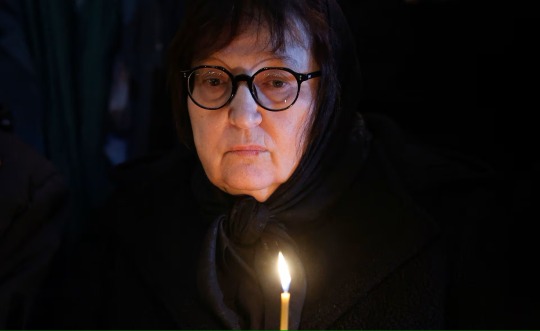
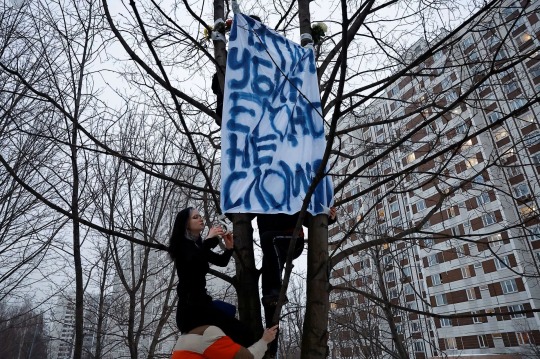
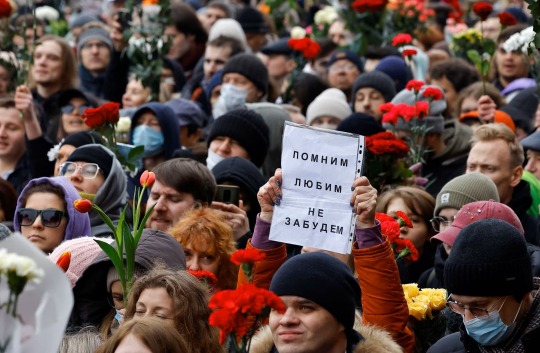
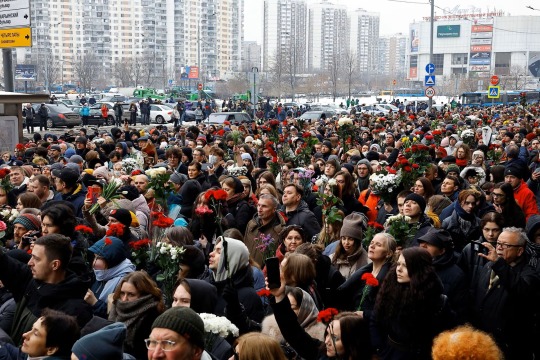
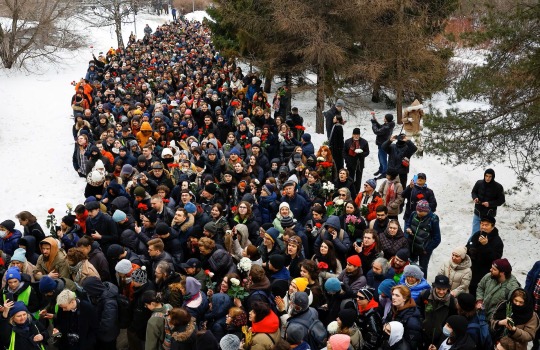
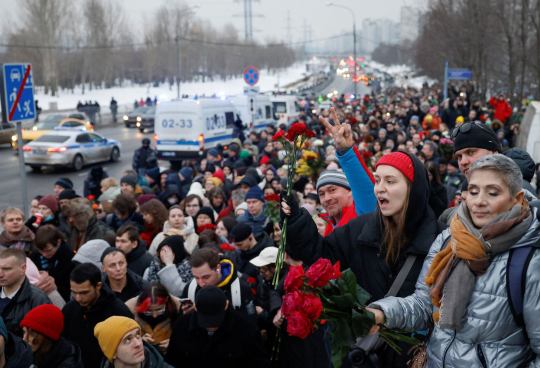
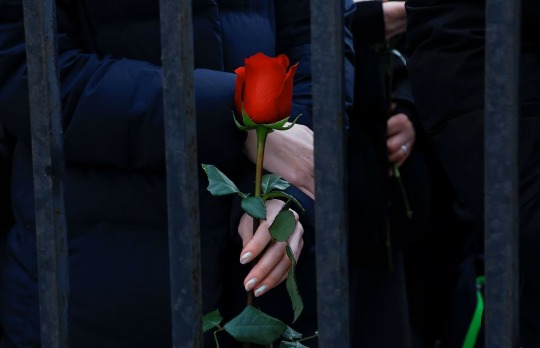
Alexei Anatolyevich Navalny (4 June 1976 – 16 February 2024)
Mr Navalny was a Russian opposition leader, lawyer, anti-corruption activist, and political prisoner.
He organised anti-government demonstrations and ran for office to advocate reforms against corruption in Russia and against Dictator Vladimir Putin and his government.
Mr Navalny was founder of the Anti-Corruption Foundation (FBK). He was recognised by Amnesty International as a prisoner of conscience, and was awarded the Sakharov Prize for his work on human rights.
Through his social media channels, Mr Navalny and his team published material about corruption in Russia, organised political demonstrations and promoted his campaigns. In a 2011 radio interview, he described Russia's ruling party, United Russia, as a "party of crooks and thieves", which became a popular epithet.
Mr Navalny and the FBK have published investigations detailing alleged corruption by high-ranking Russian officials and their associates. He twice received a suspended sentence for embezzlement, in 2013 and 2014. Both criminal cases were widely considered politically motivated and intended to bar him from running in future elections. He ran in the 2013 Moscow mayoral election and came in second with 27% of the vote but was barred from running in the 2018 presidential election.
In August 2020, Mr Navalny was hospitalised in serious condition after being poisoned with a Novichok nerve agent. He was medically evacuated to Berlin and discharged a month later. He accused Putin of being responsible for his poisoning, and an investigation implicated agents from the Federal Security Service.
In January 2021, Mr Navalny returned to Russia and was immediately detained on accusations of violating parole conditions while he was hospitalised in Germany. Following his arrest, mass protests were held across Russia. In February 2021, his suspended sentence was replaced with a prison sentence of over 2+1⁄2 years' detention, and his organisations were later designated as extremist and liquidated.
In March 2022, Mr Navalny was sentenced to an additional nine years in prison after being found guilty of embezzlement and contempt of court in a new trial described as a sham by Amnesty International; his appeal was rejected and in June, he was transferred to a high-security prison.
In August 2023, Mr Navalny was sentenced to an additional 19 years in prison on extremism charges.
In December 2023, Navalny went missing from prison for almost three weeks. He re-emerged in an Arctic Circle corrective colony in the Yamalo-Nenets Autonomous Okrug.
On 16 February 2024, the Russian prison service reported that Mr Navalny had died at the age of 47. His death sparked protests, both in Russia and in various other countries. Accusations against the Russian authorities in connection with his death have been made by many Western governments and international organisations.
Rest in Power !
Lyudmila Navalnaya, the mother of late Russian opposition leader Alexei Navalny, attends a funeral service and a farewell ceremony for her son at the Soothe My Sorrows church in Moscow, Russia, March 1.
People attach a banner to a tree near the Borisovskoye cemetery after the funeral of Russian opposition politician Alexei Navalny, in Moscow, Russia, March 1. A slogan on the banner refers to Russian President Vladimir Putin and reads: "Putin killed him but didn't break (his spirit)"
People walk towards the Borisovskoye cemetery during the funeral of Russian opposition politician Alexei Navalny in Moscow, Russia, March 1, 2024. A placard reads: "We remember, we love, we won't forget".
People walk towards Soothe My Sorrows church in Moscow, Russia and Borisovskoye cemetery during the funeral of Russian opposition politician Alexei Navalny in Moscow, Russia, March 1.
Courtesy: REUTERS/Stringer
#human rights#humanity#art#equal rights#freedom#photography#peace#love#russia#dictatorship#vladimir putin#alexei navalny#murder#moscow#funeral#reuter#rip alexei navalny#political#corruption#activism#stringer#1 March 2024#March 1#2024#march 2024
23 notes
·
View notes
Text
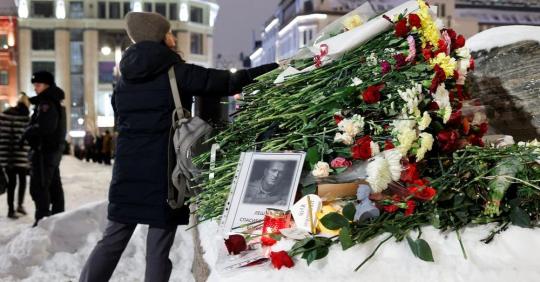
The space for dissent against Putin has been steadily contracting in Russia since he invaded Ukraine. This marks another sharp change. Why did Putin choose to kill Navalny now? That's easily answered. After Trump spoke in South Carolina denouncing NATO and stating preemptively he would not defend a NATO country from a Russian invasion, indeed inviting the invasion, and Johnson blockaded assistance to Ukraine, Putin decided he had all the cover he needed to do whatever he wanted. And Navalny's death was high on the list of things he wanted. Anyone who thinks Trump's remarks and Johnson's conduct have no consequences is simply deluding himself.
Russian opposition figure Alexei Navalny’s death Friday at a Russian prison camp in the Arctic silenced a man who was arguably the most influential remaining critic of President Vladimir Putin and the authoritarian state the former spy has methodically built on the wreckage of the Soviet Union. Putin, who has effectively run Russia for 24 years and is seeking to extend his time in office for another six years in elections set for next month, now strides the Russian political stage with almost no visible challengers. Many of those who have opposed him have ended up in prison, or dead.
Since Putin launched his invasion of Ukraine in February 2022, the Kremlin has introduced laws to punish critics of its military campaign, muzzled independent media, branded pro-peace authors and artists as “foreign agents” and denied Russians the ability to publicly express opinions about the war. Authorities have unleashed a wave of repression to ensure compliance. Many ordinary citizens have been swept up in a crackdown and handed fines and lengthy jail times for what authorities view as discrediting the army or spreading misinformation about Russia’s stalled military campaign. A 72-year-old woman who questioned Russia’s conduct in the war in Ukraine online was sentenced recently to 5½ years in jail.
[WSJ]
29 notes
·
View notes